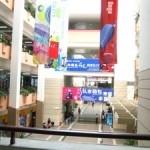Overall, foreign trade grew by 22.5 percent year-on-year to a record $3.6 trillion.
The volume of trade with Brazil rose by 34.5 percent, that with Russia grew by 42.7 percent, while trade with South Africa increased by 76.7 percent, according to data released by China’s General Administration of Customs on Tuesday.
Trade with members of the Association of Southeast Asian Nations (ASEAN) increased by 23.9 percent in 2011 year-on-year, while trade with the European Union (EU) registered year-on-year growth of 18.3 percent. Sino-US trade rose by 15.9 percent last year.
The nation will expand its trading level with emerging markets this year, as it aims to diversify and offset a slowdown in exports caused by the deepening EU debt crisis and the troubled US economy, said Zhong Shan, vice-minister of commerce, on Monday.
As the global economy slows,China’s traditional export markets, the US and EU, are troubled by debt crises or high unemployment. Demand from these markets will register limited growth, while the emerging markets are seeing economic expansion, said Jin Baisong, deputy director of the department of Chinese Trade and Studies at theChineseAcademyof International Trade and Economic Cooperation affiliated to the Ministry of Commerce.
“Fast-developing emerging markets will be the main targets for foreign trade in the coming years,” he said.
Song Hong, a senior researcher at theInstituteofWorld Economyand Politics at theChineseAcademyof Social Sciences, said: “Emerging markets undergoing industrialization will be the future destinations forChinato expand its foreign trade.”
Emerging markets such asVietnam,Indonesia,Mexicoand other members of the BRICS (Brazil,Russia,India,ChinaandSouth Africa) have large-scale economies and have maintained a rapid pace of development in recent years, and will have huge demand for Chinese exports in the future, Song said.
He added that the emerging markets will play an increasingly important role in acceleratingChina’s export growth because “they were less affected by the 2008 financial crisis than the developed countries”.
“Some emerging economies even maintained fast growth during the financial crisis because of their strong domestic demand.China’s exports, which are mainly low- or middle-end products, meet the demand from these countries.”
Zhong said that the ministry has selected 30 countries and regions as its key areas to diversifyChina’s foreign trade in view of their resources, populations and market size.
“By 2015, the volume of foreign trade with these emerging economies will rise to $5 trillion from the current $3.6 trillion,” Zhong said.
He said thatChina’s foreign trade development has relied too heavily on the traditional developed markets and that diversification will balance the structure of foreign trade.
In 2010, the Chinese mainland’s top five trading partners – the EU, the US, Japan, Hong Kong and South Korea – accounted for 53.7 percent of the country’s foreign trade, while developing countries took a 31 percent share, according to the ministry.
Wang Shouwen, director-general of the Department of Foreign Trade affiliated with the ministry, said increasing the volume of exports to the emerging markets will be the key for the stabilization of foreign trade this year.
In June,Chinawill hold an exhibition of export products inTanzaniafor the first time, rather than in its more traditional markets, such as the EU and theUS.
————————————————————————————
Yiwu Market Wholesale Trade ContactYiwu International Trade Co.,Ltd.:
We are professional Yiwu Agents.Low commission with top services.
Send us inquiry now and you will get reply in 24 hours.
Do commodity trading come to China Wholesale Market.
Back to Yiwu International.
Related text about Yiwu China:
1.Yiwu Commodity
2.Yiwu Index In December
3.Yiwu Business Descend At The End Of The Year

Yiwu Recent Comments